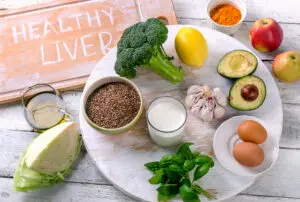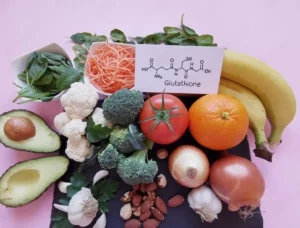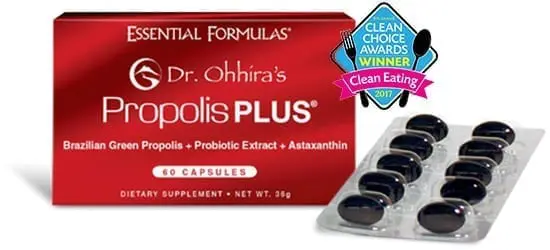Over the centuries, people have unknowingly added probiotics to their diets by using naturally occurring microorganisms to preserve food. Our modern culture has recently discovered the power of these helpful microorganisms to improve human health, and the probiotic food and supplement market has mushroomed.
At the same time, many people have adopted a vegan lifestyle. Are there probiotic foods and supplements for vegans? Read on to find out.
Understanding Vegan Probiotics
Scientists have been interested in probiotics and their positive impact on human health since the mid-19th century. The last few decades have dramatically escalated interest, resulting in a flurry of scientific studies. At the same time, the number of people joining the global veganism movement has skyrocketed.
Multiple studies have found promising results from probiotic consumption. While researchers say that more research is necessary, they have found that a well-planned vegan diet can potentially increase beneficial gut bacteria, among other positive health effects.
However, when adding probiotics to a vegan diet, it is critical to read labels and know what you are ingesting, especially when it comes to probiotic supplements.
Vegan Probiotics vs. Vegetarian-Friendly Probiotics
You must carefully consider your options when comparing vegan probiotics to vegetarian-friendly probiotics. A true vegan probiotic contains no animal products. In contrast, vegetarian-friendly probiotics might contain dairy ingredients in the supplement or the culturing medium since vegetarianism includes milk, cheese, and other dairy foods.
Veganism
Some people choose a plant-based diet for health, and others for ethical or religious reasons. Ethical concerns include compassion for animals and the environmental impact of raising animals for food.
Some studies have shown that a well-balanced vegan diet can help improve health by naturally adding fiber, antioxidants, helpful plant compounds, and certain nutrients. It also excludes certain animal products, including red, smoked, or processed meats, implicated in certain chronic concerns. For others, a vegan diet may help manage food sensitivities such as dairy intolerance.
Vegetarianism
Many of those who choose vegetarianism often have the same ethical motivations as vegans but feel that dairy products such as milk, cheese, yogurt, and eggs are acceptable.
Vegetarian diets are more diverse than vegan diets; dairy products are acceptable for calcium, and eggs are acceptable for protein. However, vegetarian diets are still plant-based, and it is essential to carefully consider food choices to consume all the nutrients your body needs.
Key Differences Between Vegan and Vegetarian Probiotics
Even though each probiotic supplement lists ingredients on the label, it’s essential to research the manufacturer to ensure their processes suit your digestive health and ethical preferences.
What Is a Vegan Probiotic?
A vegan probiotic is carefully created from the beginning to avoid allergens and honor the purchaser’s health and ethical choices. The probiotics must be introduced into a vegan culturing medium in the culturing process. This medium must be vegan because culturing medium ingredients may be in the final product.
As the manufacturer makes the probiotic into a supplement, all of the capsule’s components must be plant-based, without animal ingredients. For a reputable company, all this information will be on the label. However, with so many products on the market, it is critical to research the manufacturer to ensure they are making a quality vegan product.
What is a Vegetarian Probiotic?
A vegetarian probiotic might include milk-derived ingredients, or the manufacturer may culture it in a dairy-based medium.
Ingredients to Watch Out For
A probiotic may have animal-based ingredients inappropriate for vegan or vegetarian diets. Gelatin capsules are relatively obvious, and we mentioned potential dairy-based culturing mediums. However, probiotic supplements may also contain lactose – milk sugar – or magnesium stearate from animal sources as additives.
Read the Label
Labels for probiotic supplements contain valuable information, including the strains of probiotics the product contains. The most effective probiotic supplements contain several cultures to increase microbiome diversity. They may also include information about awards the product has won and any outside evaluations.
The packaging should include “other ingredients” in a separate part of the label. This section is one of the most critical areas to study as it may include chemicals and additives you would prefer not to consume. If there are components you do not recognize, look them up to ensure they are vegan or vegetarian.
Efficacy and the Source of Probiotics
Choosing a plant-based probiotic is a good idea not only from an ethical perspective but also for dietetic value. One of the main reasons for choosing a vegan probiotic is that manufacturers often culture probiotics in a non-vegan culturing medium. If you are dealing with digestive issues or are allergic to dairy, you could react negatively to the supplement.
Probiotic Sources
Probiotics are available in supplements, but you can also obtain probiotics from food. Throughout history, people used friendly bacteria to help preserve food and unknowingly consumed helpful bacteria at the same time.
Vegan Foods with Probiotics
Think of sourdough bread that uses a starter. The culture began as natural bacteria in the environment and passed from one generation to another as a way to leaven bread. Or consider the creation of yogurt and cheese that farmers used to preserve milk products without refrigeration.
Fermented vegetables like Kimchi and sauerkraut provided nourishment during the winter when nothing grew in the garden, and fermented soy products like tofu, tempeh, and miso added protein. Without knowing it, those who came before us bolstered their immune systems with friendly bacteria.
Today, there are many options our forebears did not have. For instance, there are many types of vegan yogurt with probiotics made with almond, coconut, or oat milk.
Vegan Probiotic Foods vs. Supplements
Times have changed, and our microbiome, the friendly bacteria that inhabit our bodies, experiences multiple insults from our industrialized, stressed, fast-food, and over-medicated lives. We can assist our bodies in coming back to balance by reintroducing probiotics from foods and supplements into our diets.
The drawback of naturally fermented foods or foods with added probiotics is that you often have no idea whether the bacteria are still alive; the label may not list the bacterial strains in the product. The other drawback is that some people do not enjoy the taste of cultured foods.
A quality supplement lists its ingredients clearly on the label. It is convenient, easy to take, and provides probiotic strains recognized as helpful for the human body.
Making an Informed Decision
When considering a probiotic to improve your overall health, identify your concerns to guide your search. Ask yourself a few questions: Do you have food allergies to consider? Are you vegan or vegetarian? Why are you vegan or vegetarian? Is it an ethical decision? A health decision? Is the product genuinely vegan? Does it list multiple strains for a balanced microbiome?
Dr. Ohhira’s Probiotic Supplements
Dr. Ohhira has created a top-quality probiotic that is non-GMO, vegetarian, and cultured with all-natural, seasonal ingredients. It has no artificial additives, chemicals, preservatives, coloring, or animal by-products.
Dr. Ohhira’s probiotics are a fusion of ancient Japanese wisdom and up-to-the-minute science. Cultured in vats for three years, not in a laboratory, the final probiotic supplement contains viable friendly bacteria and the prebiotics that provide food for the microorganisms to colonize the digestive system. They also contain postbiotics, the beneficial products of the probiotics’ action in the body.
FAQs
What is the difference between vegan and vegetarian-friendly probiotics?
Vegan probiotics contain no animal products from the beginning to the end of the manufacturing process. Vegetarian probiotics may be grown in a dairy-based growth medium, encapsulated in a gelatin capsule, or may contain other non-vegan ingredients.
Are there specific probiotic strains that are more suitable for vegans?
There is no scientific evidence that certain probiotic strains are preferable for vegans. The most important things to look for are live cultures and the inclusion of only vegan ingredients.
How can consumers verify if a probiotic is truly vegan or vegetarian?
The best way to verify whether a probiotic is vegan or vegetarian is to carefully read the label and research the manufacturer to confirm that they are reputable.
A Few Final Words About Vegan and Vegetarian Probiotics
There are many options for vegan or vegetarian probiotics. With so many products on the market, how do you choose one? Before you begin your research, check in with yourself. What are your dietary considerations, and what health goals do you hope to achieve?
With this information, you can find products that suit your criteria. At Dr. Ohhira’s, we have developed a probiotic product that our customers rate as next to none. Take a deeper look at our products, and we think you’ll agree that we deliver a clean product suitable for any lifestyle, including veganism and vegetarianism. Contact us today if you have any questions.






